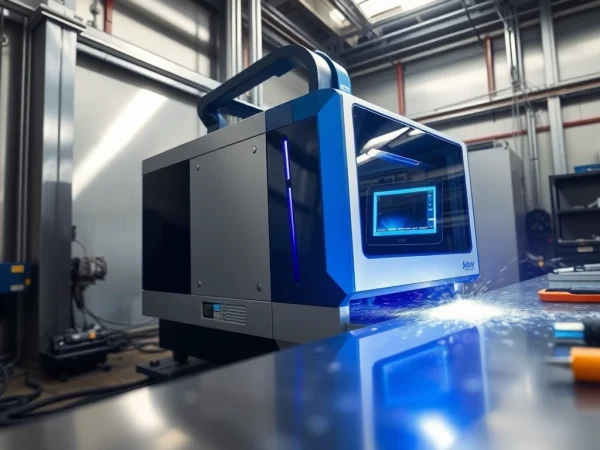Essential NVQ Level 4 Crane Supervisor Answers for Lift Operations Success
Understanding NVQ Level 4 Crane Supervisor Responsibilities
The National Vocational Qualification (NVQ) Level 4 in Crane Supervision is a vital certification for professionals looking to advance in the field of lifting operations. This qualification not only validates a candidate’s ability to supervise lifting operations but also ensures they are well-versed in safety, legislation, and best practices. Mastering the associated responsibilities is paramount for anyone aspiring to excel in crane supervision. For a complete set of answers and guidance on the NVQ Level 4 assessment, refer to NVQ Level 4 Crane supervisor answers.
Key Roles and Duties of a Crane Supervisor
The crane supervisor plays a crucial role in ensuring that all lifting operations are conducted safely, efficiently, and in compliance with legal requirements. Their primary duties include:
- Planning Lifting Operations: Assessing the job site and determining the most effective lifting strategy. This involves calculating the weight of the load, selecting the appropriate crane, and identifying potential risks.
- Site Safety Inspection: Conducting thorough safety checks on lifting equipment and ensuring that the site is prepared for safe crane operations.
- Communication: Effectively directing the lift team, including operators and riggers, ensuring everyone understands their roles prior to commencing lifts.
- Emergency Procedures: Being prepared for emergencies by devising and rehearsing response plans with the team.
- Documentation: Maintaining records related to lifting operations, safety checks, and any incidents that may arise.
Legal and Safety Regulations in Crane Operations
Compliance with legal regulations is imperative in crane operations. In the UK, several key pieces of legislation govern the safety and operation of cranes, including:
- The Lifting Operations and Lifting Equipment Regulations (LOLER) 1998: This regulation requires that all lifting operations are planned, supervised, and carried out safely.
- The Provision and Use of Work Equipment Regulations (PUWER) 1998: Ensures that equipment is safe to use and that operators are trained and competent.
- The Health and Safety at Work Act 1974: Imposes a general duty on employers to ensure, as far as is reasonably practicable, the health and safety of their employees.
Understanding these regulations helps supervisors ensure that all necessary safety measures are taken to protect workers and the public.
Importance of Effective Communication Skills
Communication is vital in crane supervision. Clear, concise dialogue among team members can prevent misunderstandings that could lead to accidents. Essential aspects of communication include:
- Understanding Signals: Crane supervisors must ensure that all team members are proficient in hand signals and radio communications, which are crucial during operations.
- Briefing the Team: Conducting pre-lift briefings to clarify roles, highlight safety measures, and discuss potential challenges.
- Active Listening: Supervisors must be able to listen to feedback and concerns from their team to promote a collaborative working environment.
Reviewing NVQ Level 4 Crane Supervisor Answers
Understanding the assessment criteria for the NVQ Level 4 Crane Supervisor qualification is essential for preparing effectively and increasing the chances of passing. This section provides insights into what to expect and how to optimize your responses.
Overview of Assessment Criteria
The NVQ Level 4 assessment evaluates candidates on several key areas relevant to crane supervision. These include:
- Knowledge of Lifting Operations: Understanding different types of lifts and the equipment used, including weight calculations and load dynamics.
- Safety Practices: Application of safety regulations and protocols in real-world scenarios.
- Team Management: Demonstrating effective supervision and leadership qualities, emphasizing communication and interpersonal skills.
- Problem-Solving: Analyzing potential issues on-site and proposing viable solutions.
Common Questions Asked in the NVQ Assessment
The types of questions presented in the NVQ assessment often revolve around theoretical knowledge and practical applications. Some common question formats include:
- Scenario-based Questions: Candidates may be presented with hypothetical scenarios that require them to outline appropriate actions and safety measures.
- Multiple Choice Questions: Test knowledge on legislation, equipment, and best practices.
- Open-ended Questions: Require detailed explanations on procedures or regulations.
Tips for Answering Effectively
To excel in the NVQ Level 4 assessment, consider the following tips when crafting your answers:
- Be Concise and Relevant: Keep your answers focused and to the point, directly addressing the question asked.
- Use Examples: Where appropriate, back your responses with real-life experiences or examples from your past supervision roles.
- Stay Updated: Regularly review industry best practices and legislative updates to ensure your answers reflect current standards.
Preparing for the NVQ Level 4 Assessment
Preparation is key to success in the NVQ Level 4 Crane Supervisor Assessment. With comprehensive planning and resource utilization, candidates can enhance their knowledge and readiness for the exam.
Study Materials and Resources
A range of study materials are available to support candidates in their preparation, including:
- Official Guidance Documents: These include materials directly from regulatory bodies and authors focused on crane safety and operations.
- Online Courses: Numerous platforms offer courses specifically tailored to NVQ Level 4, covering theoretical and practical components.
- Books and Manuals: Investing in reputable books on crane operations and safety can provide in-depth knowledge that is pivotal for the assessment.
Mock Tests and Practice Questions
Engaging in mock tests can significantly improve your readiness for the actual exam. Consider utilizing:
- Online Resources: Websites often provide practice questions that simulate the assessment environment.
- Study Groups: Collaborating with peers can facilitate knowledge sharing and provide additional perspectives on complex topics.
- Assessment Centres: Some training organizations offer mock assessments that mimic real-world testing conditions.
Time Management Strategies for Preparation
Effectively managing your time while preparing for an NVQ assessment can greatly enhance your study efficiency. Here are some strategies to consider:
- Create a Study Schedule: Develop a timetable that allocates specific times for each subject area, allowing ample time for review and rest.
- Prioritize Topics: Identify areas where you need the most improvement and focus on those first, gradually moving to more proficient topics.
- Set Realistic Goals: Break study material into manageable sections and set achievable daily or weekly goals to maintain motivation.
Best Practices for Lifting Operations
Understanding the best practices for lifting operations is crucial to ensure safety and efficiency on-site. A comprehensive approach to lifting involves planning, execution, and reflection.
Planning and Organizing Lifts
Effective planning at the outset of any lifting operation lays the groundwork for a successful execution. Consider the following:
- Conduct Risk Assessments: Identify potential hazards associated with the lift, including environmental conditions, equipment limitations, and personnel capabilities.
- Selection of Equipment: Choose the appropriate crane for the task, taking into account lift capacity, boom length, and reach requirements.
- Involvement of Stakeholders: Engage all relevant stakeholders, including ground staff, riggers, and operators, in the planning process to ensure clarity in roles and responsibilities.
Identifying Hazards and Mitigation Strategies
Hazard identification is a fundamental component of lifting operation management. Implement effective mitigation strategies by:
- Regular Inspections: Conduct pre-lift inspections of equipment to ensure it meets safety standards before commencing operations.
- Emergency Protocols: Develop and communicate clear emergency procedures to mitigate risks during unforeseen incidents.
- Continuous Monitoring: Monitor site conditions throughout the lift to adapt to any changes and address issues promptly.
Post-Operation Review and Documentation
Completing a thorough review of each lifting operation is essential for continuous improvement. Key aspects to cover include:
- Incident Reporting: Document any issues or incidents that arose during the lift to refine future operations.
- Performance Analysis: Evaluate the effectiveness of the lift in terms of time taken, adherence to safety protocols, and feedback from the team.
- Documentation Maintenance: Keep meticulous records of all lifts completed, equipment used, and any relevant observations to assist with future planning.
Advancing Your Career Beyond NVQ Level 4
Achieving NVQ Level 4 in Crane Supervision is a significant milestone, but furthering your career requires ongoing development and strategic planning. Here are avenues to explore for career advancement.
Potential Additional Qualifications
Once you have achieved NVQ Level 4, consider pursuing further qualifications to enhance your skill set. Options include:
- NVQ Level 5 in Management: Further training in management principles can equip you with leadership skills for higher responsibility roles.
- Specialized Certification: Courses focusing on specific aspects of crane operations, such as tower cranes or mobile cranes, can deepen your expertise.
- Health and Safety Qualifications: Certifications in health and safety can broaden your professional appeal, enabling roles that demand a strong focus on workplace safety.
Career Pathways in Crane Supervision
The field of crane supervision offers various potential career pathways, including:
- Site Supervisor/Manager: Progressing into roles involving overall site management, overseeing multiple operations and staff.
- Training and Mentoring: Sharing your knowledge by becoming a trainer for future crane operators and supervisors.
- Consulting: Providing advisory services to construction firms on lifting operations and safety compliance.
Building a Professional Network in the Industry
Networking plays a critical role in career development. Engaging with industry professionals can lead to new opportunities. Consider:
- Industry Conferences: Attend events focused on construction and safety to meet peers and learn about emerging trends.
- Professional Organizations: Join associations related to crane operation and safety, which can provide resources and networking opportunities.
- Online Platforms: Engage with online communities and groups on platforms such as LinkedIn to connect with industry professionals and share knowledge.










